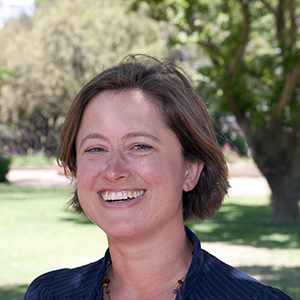Latest News Archive
Please select Category, Year, and then Month to display items
12 January 2024
|
Story Nonsindiswe Qwabe
|
Photo Sonia Small
 Since joining the UFS in 2008, Dr Grey Magaiza has worked extensively on approaches that can foster the socio-economic transformation of societies.
Since joining the UFS in 2008, Dr Grey Magaiza has worked extensively on approaches that can foster the socio-economic transformation of societies.
“The future should be one where communities can decide on their development agenda and futures. That’s the most important for me.” Dr Grey Magaiza, Deputy Director of the Centre for Gender and Africa Studies (CGAS) and Head of the Community Development programme on the Qwaqwa Campus, is passionate about capacitating communities to be agents of change and advancement. His vision for the future emphasises the empowerment of communities to take charge of their development by actively participating in decision making and the implementation of development projects that can improve their lives.
Since joining the UFS in 2008, Dr Magaiza has worked extensively on approaches that can foster the socio-economic transformation of societies. Over the years, he has crafted his research speciality into one that he is most proud of – being an interdisciplinary scientist immersed in the development of communities.
“I’m in a fortunate position of researching what I like. I say ‘fortunate’, because I’ve taken the time to understand what I’m passionate about, which is the overall field of rural livelihoods and livelihood futures – in short, community development. My research starts from an engaged university, understanding the elements that a university must use to enhance transformation and relevance to its immediate community in terms of development.”
One of the ways he has done this is by looking at social entrepreneurship as a development approach for young people in a rural setting. Through workshops with non-profit and civic organisations in Qwaqwa, Dr Magaiza has been helping these organisations to map out their needs and actively meet them through the involvement and support of external role players.
“We understand that communities are part of the national development agenda, but even that national agenda respects community knowledge and intentions and allows communities to shape their identity. A critical enabler of this is community organising. You bring back the capacity in communities to have dialogues on issues affecting them as spaces for engagement, knowledge exchange, and for people to just talk about their way forward.”
By enabling communities to define their development agenda, they can address their specific needs, challenges, and aspirations, he said. “When I look at livelihood futures, it’s quite an exciting aspect of my work – it’s like looking into a fortune tellers’ globe, because you’re not deciding for communities what they should do, but the communities themselves take those decisions.”
Dr Le Roux a fellow of Africa Science Leadership Programme
2016-02-23

Dr Aliza le Roux
Photo: Hannes Pieterse
|
National Research Foundation-rated Y2 scientist, Dr Aliza le Roux, has recently been added to the Africa Science Leadership Programme, an initiative that seeks to create an African network of scientific leaders across disciplinary borders. Her selection to this programme is a reflection of her powerful vision for the continent’s scientific future and sustained scientific excellence.
“It is an honour and an opportunity for me to grow as an academic. This opportunity will also help me build my leadership skills as well as my networks on the continent. It will create a culture of leadership and research that is led by African researchers,’’ Dr Le Roux said.
She added that African researchers have a great potential to solve global problems, yet many of them leave their countries to seek academic success elsewhere. “I hope that the lessons we learn in this programme will pave the way for academia and science to be taken more seriously and practiced more effectively on the continent.”
Together with 21 other fellows from across the continent, Dr Le Roux will be taking part in a week-long workshop in April this year. She is a Senior Lecturer and Subject Head in the Department of Zoology and Entomology on the Qwaqwa Campus of the University of the Free State.